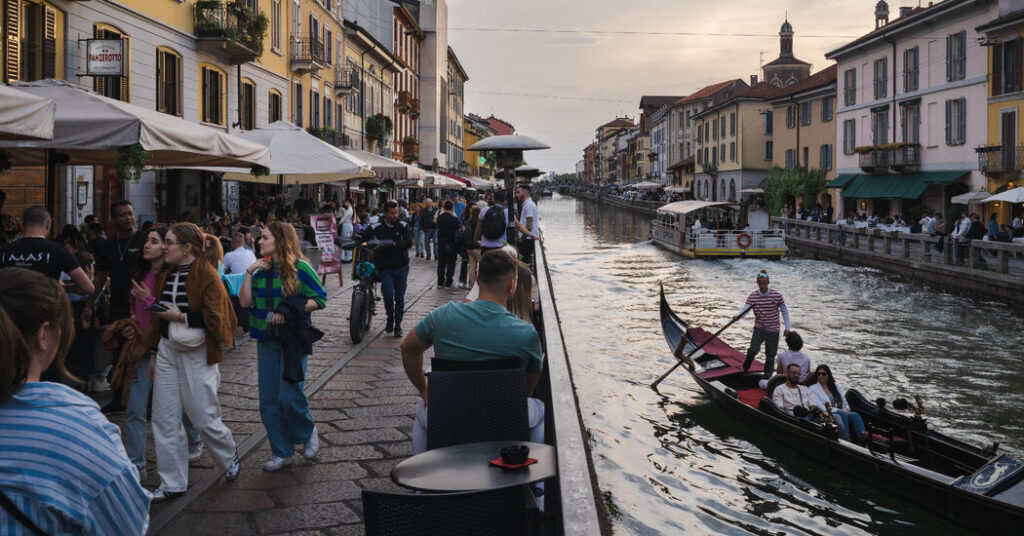People of Italian descent have for decades been able to dig through their family trees, find an Italian ancestor and apply for citizenship to Italy, securing a powerful passport that allows them to enter more countries without a visa than travelers of almost any other nationality.
But so many have tried to claim the benefit that their applications have congested Italy’s courts, consulates and municipal offices, grinding other work to a near halt.
The government has had enough.
Fewer people of Italian descent will now be able to obtain citizenship after the government narrowed eligibility only to those with Italian parents or grandparents.
The decree, announced on Friday and effective immediately, strips away a provision that had allowed all comers to seek citizenship if they could prove — often through a lengthy and laborious process — that they had an Italian ancestor who was alive after the country was formed in 1861.
Antonio Tajani, the Italian foreign minister, said the stricter regulations followed “years of abuses” by people who had few ties to the country and only coveted its passport.
Italy has granted citizenship in recent years to a surging number of South Americans, Mr. Tajani said, suggesting that many new Italians mainly hoped to travel around Europe or to the United States. “Being an Italian citizen is a serious thing,” he said at a news conference. “It’s not a game to get a passport in your pocket to go shopping in Miami.”
The move comes as many countries are rethinking who can be a citizen in response to a sharp rise in migration. In Italy, as in much of Europe, immigration law has been largely based on bloodlines, allowing the country to maintain ties with the descendants of millions of Italians who fled poverty and war in the 19th and 20th centuries.
Yet Italy is facing a demographic crisis as the population ages and the birthrate plummets. Critics say it is unfair for Italy to grant citizenship to people with long-lost ancestry while denying birthright citizenship to the children of immigrants, including those with legal status. Italy allows children of lawful immigrants to become citizens only once they have turned 18 and if they have lived in the country since birth.
Mr. Tajani said the government would pursue legislation that would allow the children or grandchildren of Italian citizens to obtain citizenship if they reside in Italy for two or three years, instead of the five or 10 years required for European citizens and other foreigners.
That the government of Prime Minister Giorgia Meloni, a nationalist, chose to impose restrictions on bloodline citizenship surprised and upset some on the political right, who argue that the government should preserve Italian cultural and ethnic identity.
But Mr. Tajani said a lucrative cottage industry had profited from charging would-be Italians thousands of dollars to find ancestral records and submit citizenship applications. “We cannot encourage cheating or fake citizenship,” he said, holding up printouts of the companies’ ads on social media. One advertised a Black Friday special.
A surge in applications is overwhelming some of Italy’s institutions, with courts struggling to process requests and small towns inundated with requests for old birth, death and marriage records. Consular appointments are so scarce that Italian citizens abroad routinely log on to an online portal at midnight Italy time to try to secure one.
The number of Italian citizens abroad grew about 40 percent over the last decade, to 6.4 million in 2024 from 4.6 million in 2014, in large part because of newly minted citizens, Mr. Tajani said. Italy granted citizenship to some 30,000 people in Argentina last year, up from 20,000 in 2023, and to around 20,000 people in Brazil, up from 14,000. (One Argentine who received Italian citizenship when he visited Rome in December: President Javier Milei.)
Alberto Teso, the mayor of San Donà di Piave, a city near Venice, told the public broadcaster RAI in February that half of his staff worked full-time on citizenship applications for people — most of them from Brazil — who “will never set foot in our city.”
Even before the decree was announced on Friday, Italy had already started rejecting more citizenship applications.
In October, the Interior Ministry issued a memo based on recent rulings from the Italian Supreme Court that more narrowly interpreted citizenship law. It said that if applicants Italian ancestors had voluntarily acquired a new nationality while their children were minors, those children automatically lost their Italian citizenship. That meant the citizenship chain was broken.
The memo left scores of applicants with limited recourse, even if they had been engaged in the citizenship process for years. Reddit threads and Facebook groups sharing advice on how to obtain citizenship filled with posts lamenting the time, effort and money lost.

